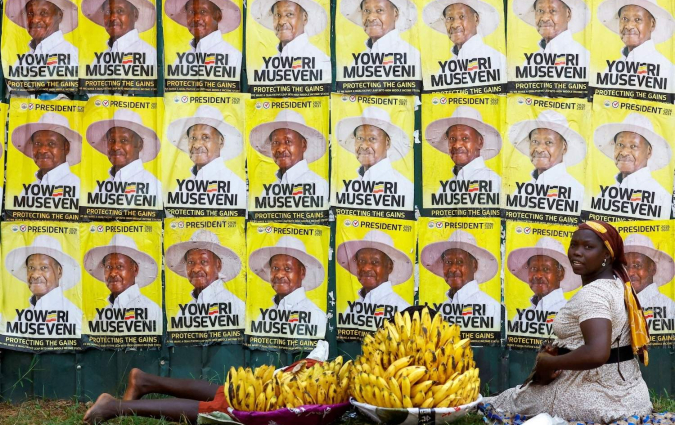Reuters Institute talks at the European Communication Conference 2021

The 8th European Communication Conference organised by the European Communication Research and Education Association takes place this September. Here are the abstracts of papers, authored by Reuters Institute researchers, that will be presented at this year's gathering of communications scholars from across Europe and further afield. Note: Abstracts were submitted in early 2020 and in some cases the underlying research may have changed since then.
Polarised public trust in news from public service media across Europe
Richard Fletcher, Anne Schulz, Rasmus Kleis Nielsen
In many European countries, public service media dominate the news media system. They are typically the most widely-used news outlets both online and offline, and the most trusted (Newman et al. 2019). However, at the same time, many public service media have faced increased scrutiny and criticism from various sections of society in recent years, with potential consequences for patterns of public trust in their news output. Here, we use survey data (N=24,398) from the 2019 Reuters Institute Digital News Report (Newman et al. 2019) to explore trust in news from public service media in 12 European countries across four different media systems (Brüggemann et al. 2014), each home to different historical, political, and economic contexts in which public service media operate.
Across these countries we measured the level of trust in news from 196 different outlets. We find that (i) although public service media are the most trusted sources of news in Western, Northern, and Central European countries, (ii) trust in public service media is highly polarised. In fact, using the bimodality coefficient as a measure of attitude polarisation (cf. Lelkes 2016), we see that attitudes towards news from public service media are more polarised than attitudes towards any of the other most popular news outlets in all Northern, Western, and Central European countries analysed. However, in Southern European countries, where public service media are usually a less important part of the media system, trust in public service media is both lower and less polarised.
Following on from this, one question is who are the relatively small minority that typically have very low levels of trust in news from public service media? Using individual-level regression analysis in each country we find that (iii) in Western, Northern, and Central European countries those with low trust are typically male, have low interest in news, and right-wing, populist attitudes. However, in Southern European countries the patterns are less consistent.
Our findings uncover high levels of polarisation beneath the high overall levels of trust in news from public service media. They also show that this polarization is stronger in countries where public service media are more important and more widely-used. This raises the possibility that for all news outlets—whether public or private—patterns of trust are partly linked to perceptions of power and influence, as well as perceptions of coverage.
Session: Political Communication in International Comparison
Audience Polarisation and WhatsApp Use: Evidence from mobile navigation data in Spain during the first Covid-19 national lockdown
Sílvia Majó-Vázquez, María Victoria Mas, Ana S. Cardenal, Iván Lacasa
The popularity of messaging apps, like WhatsApp, to access news has boomed. In 2020, national lockdowns amid the Covid-19 pandemic exacerbated this trend (Nic Newman, Fletcher, Schulz, Andi, & Nielsen, 2020). However, the growing use of WhatsApp is combined with the scarce research done so far to understand how messaging apps shape news consumption habits in times when they have become increasingly central to our media systems. In this study, we aim to provide evidence on 1) the level of polarisation of news audiences in messaging apps like WhatsApp and 2) the moderating role of populist attitudes in news consumption referred by WhatsApp.
Session: Mapping Antecedents and Consequences of Polarisation
Exposure to low-quality news on WhatsApp: A study of six countries
Closed messaging applications, such as WhatsApp and Facebook Messenger, are increasingly used for sharing news and political information, as well as for interpersonal communication. They offer users more privacy than many more ‘open’ social networks, making them particularly popular in countries where people worry about freedom of expression and mobile internet access is more common. However, the closed nature of many popular messaging apps simultaneously makes it more challenging for researchers to study its prevalence and possible effects of exposure to low-quality news and information, and for policymakers to find effective ways of addressing the problem.
In this study, we use online survey data from the Reuters Institute Digital News Report to examine the relationship between using WhatsApp for news and the likelihood of self-reported exposed to six types of low-quality news: poor journalism, misleading headlines that turn out to be adverts, satirical news, spun or distorted news, completely made-up news and the use of the term “fake news” to discredit the media. We analyse survey data from a strategic sample of six countries with varying degrees of WhatsApp popularity. We compare data from the United States, the United Kingdom, and Germany, where WhatsApp use is relatively less widespread, with Spain, Brazil, and Malaysia, where WhatsApp use is much more popular. In Spain, Brazil, and Malaysia, where WhatsApp is an essential source of information, our results show that using WhatsApp is associated with greater self-reported exposure to low-quality news, including stories that respondents believe to be completely made-up.
However, we find no statistically significant relationships between WhatsApp use and low-quality news exposure in the United States, the United Kingdom, and Germany. Although it is not possible to directly track exposure to information on WhatsApp due to its closed nature, the results suggest that the role of WhatsApp varies across countries with different media systems and different technological infrastructures.
Session: Political Communication in International Comparison
The irrelevance of news in everyday life: Attitudes that predict distrust and avoidance of news across 38 countries
Antonis Kalogeropoulos, Benjamin Toff, Richard Fletcher
The watchdog role has been one of the most widely discussed normative functions of the press. The watchdog role has been one of the most widely discussed normative functions of the press. This “long-established liberal conception of the news media as the fourth estate,” as Norris (2014) describes it, conceives of the press as “an independent guardian located in civil society” that serves as a counterbalance to powerful institutions in the executive, legislative, and judicial branches in government but also those in the private sector as well.
In this study we examine the public’s attitudes towards the news media’s watchdog performance and what role it plays in predicting trust in news and news avoidance, two important phenomena for democracy and the health of the public sphere. Based on data from the 2019 Reuters Institute Digital News Report, and controlling for a range of factors, we find that a) watchdog performance evaluations are positively associated with trust in news but that they are also positively associated with higher levels of news avoidance, b) evaluations of media in other functions like helping citizens understand the most important topics of the day and choosing relevant topics were stronger than watchdog performance evaluations in predicting trust in news and lower news avoidance levels respectively, c) politically oriented citizens (high in interest and stronger ideologues) are more likely to value watchdog performance evaluations for trust in news, and d) in countries with lower levels of press freedom respondents are more likely to avoid news if they perceive news media as successfully fulfilling their watchdog role.
Overall, we find that while watchdog performance evaluations are important for what people think about the news media, they are not as strong or consistent in predicting news avoidance behaviours, particularly when compared with other attitudes, since less political functions of the press appear to be more generally salient.
Session: News Audiences and Trust







